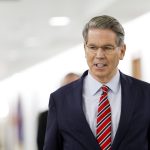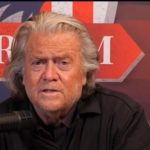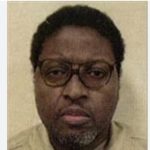Andrew Harnik/AP
- The deadly Jan. 6 riot showed how Trump made the US more like Russia under Putin, Fiona Hill said in a new op-ed.
- Trump during his tenure “came to more closely resemble Putin in political practice” than any of his US predecessors, Hill said.
- Hill wrote that Trump’s lies about the election resembled tactics employed by Putin to tighten his grip.
- See more stories on Insider’s business page.
Fiona Hill in a new Foreign Affairs op-ed said that President Donald Trump’s deadly “self-coup” attempt on January 6 was indicative of the ways in which the US became more like Russia under his leadership.
Hill, a National Security Council official during the Trump administration, wrote that Trump during his tenure “came to more closely resemble [Russian President Vladimir] Putin in political practice” than any of his US predecessors.
“The event that most clearly revealed the convergence of politics in the United States and Russia during Trump’s term was his disorganized but deadly serious attempt to stage a self-coup and halt the peaceful transfer of executive power after he lost the 2020 election to Biden,” said Hill, who served as Trump’s top Russia advisor and co-authored a biography on Putin.
“Russia, after all, has a long history of coups and succession crises, dating back to the tsarist era, including three during the past 30 years,” she added.
The Capitol attack was the culmination of four years of “conspiracies and lies that Trump and his allies had fed to his supporters on social media platforms, in speeches, and on television,” Hill said.
The “Big Lie,” or the false notion that the election was stolen from Trump, was “built on the backs of the thousands of little lies that Trump uttered nearly every time he spoke and that were then nurtured within the dense ecosystem of Trumpist media outlets,” Hill added.
This was yet another way that the US came resemble Russia under Trump, Hill wrote, in the sense that Putin has “long solidified his grip on power by manipulating the Russian media, fueling nationalist grievances, and peddling conspiracy theories.”
Hill, who was a central figure in Trump’s first impeachment over his dealings with Ukraine, said that the former president also “aped Putin’s willingness to abuse his executive power by going after his political adversaries.”
Trump told associates that he admired Putin over his wealth and for running Russia as if it was his “own private company,” Hill wrote, because he wanted to do the same in the US.
Putin and the Kremlin were filled with glee by Trump’s 2016 victory, because he was a “populist, nativistic president with no prior experience in foreign policy and a huge, fragile ego.”
Tensions between Russia and the US reached historic heights after Putin’s illegal annexation of Crimea in 2014, and the animosity appeared poised to continue under Trump’s 2016 rival – former Secretary of State Hillary Clinton.
Hill wrote that Putin saw Clinton as a threat because of the ways in which she promoted “democracy and civil society to root out corruption in Russia” while she served as the top US diplomat in the Obama administration. Putin was concerned that if Clinton won, she would “have continued to hound him and hold him to task,” Hill said. Trump, a divisive, ego-driven figure, was an ideal alternative for the Russian president.
“Putin has to deter or defeat any opponents, foreign or domestic, who have the capacity to undermine his regime,” Hill said. “His hope is that leaders in the United States will get so bogged down with problems at home that they will cease criticizing his personalization of power and will eschew any efforts to transform Russia.”
The US intelligence community concluded that the Kremlin interfered in the 2016 election – under Putin’s orders – to boost Trump’s chances of winning.
Trump’s amicable dynamic with Putin was therefore a constant source of criticism and speculation during his presidency. He went out of his way to avoid criticizing the Russia leader, despite rising tensions Washington and Moscow over Putin’s aggressive actions both at home and abroad.
Trump also downplayed Russian election interference, and during an infamous July 2018 press conference appeared to side with Putin over the US intelligence community over the matter. Hill, who was with Trump in Helsinki at the time, wrote that she considered “faking a seizure” and “hurling” herself into the journalists sitting behind her in order to derail the press conference.
Powered by WPeMatico






